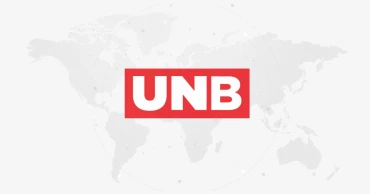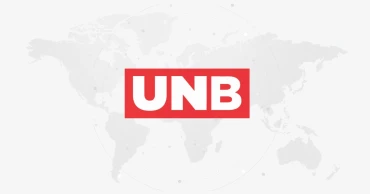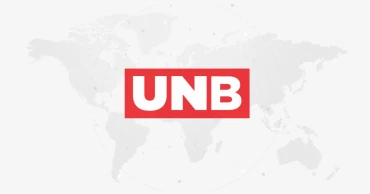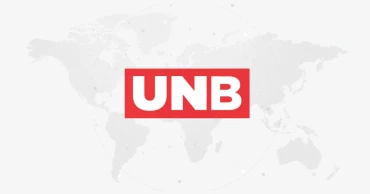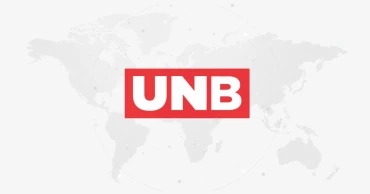Interview
The Majestic Bengal Tiger: Conservation Success in the Sundarbans
The Sundarbans, the world’s largest mangrove forest, straddling the border of Bangladesh and India, is a vital stronghold for the Bengal tiger (Panthera tigris tigris). In a really engaging interview with the UNB digital team on August 4, 2025, Prof. Dr. Md. Anwarul Islam, the CEO of Wildteam, gave some eye-opening updates about the tigers living in this incredible place and other areas, sharing stories of conservation triumphs and a bit of historical context.
Rising Tiger Numbers in the Bangladesh Sundarbans
Recent surveys indicate a promising upward trend in the tiger population within the Bangladesh portion of the Sundarbans. According to Prof Islam, the Forest Department recorded 106 tigers in 2015 using camera trapping techniques. By 2018, a collaborative effort between the Forest Department and Wildteam counted 114 tigers. The most recent survey in 2024, conducted by the Forest Department, reported 125 adult tigers, reflecting a nearly 10% increase since 2018 and a 17.92% rise since 2015. This growth is attributed to enhanced conservation measures, including anti-poaching patrols and habitat protection initiatives.
The Sundarbans ecosystem is divided between Bangladesh and India, with approximately 60% of the forest located in Bangladesh and 40% in India. Prof Islam noted that while Bangladesh hosts 125 tigers, the Indian Sundarbans is estimated to have around 100 tigers, based on the latest available data from 2022. This brings the total tiger population in the Sundarbans to an estimated 225-250. The mangrove forest, a UNESCO World Heritage Site, is the only mangrove habitat in the world inhabited by tigers, making it a critical conservation area.
Read more: Poacher held with 300 deer traps in Sundarbans
Table 1: Tiger population distribution in the Sundarbans.
Region
Estimated Tiger Count
Percentage of Sundarbans Area
Bangladesh
125 (2024)
60%
India
100 (2022)
40%
Total
225-250
100%
.
Global Tiger Population and India’s Role
According to Prof. Islam, Globally, the tiger population is estimated at approximately 5,500, with India accounting for about 70% of this total, or roughly 3,850 tigers. According to a 2022 census, India’s tiger population stood at 3,682, with key reserves like Jim Corbett (260 tigers), Bandipur (150), and the Sundarbans (100) contributing significantly. This dominance underscores India’s pivotal role in global tiger conservation, supported by initiatives like Project Tiger and the expansion of tiger reserves.
Historical Presence of Tigers in Bangladesh
Prof Islam reflected on the historical distribution of tigers in Bangladesh, noting that they once roamed freely in regions such as Gazipur, Sylhet, Modhupur, and other areas. However, habitat loss, deforestation, and human encroachment have restricted their range to the Sundarbans. He cited an example of a tiger killed in Gazipur approximately 100 years ago, illustrating the significant contraction of tiger habitats over time. Today, the Sundarbans remains the last refuge for tigers in Bangladesh, emphasizing the need to protect this critical ecosystem.
Read more: UNESCO World Heritage Sites in Bangladesh
Clarifying the Royal Bengal Tiger
A common misconception is that the "Royal Bengal tiger" is a distinct subspecies. Prof Islam clarified that the term refers to the habitat rather than a unique taxonomic classification. The Bengal tiger (Panthera tigris tigris) is found across Bangladesh, India, Myanmar, Nepal, and Bhutan, thriving in diverse environments from mangrove swamps to deciduous forests. The Sundarbans’ tigers are morphologically distinct due to their adaptation to the mangrove habitat, but they are part of the broader Bengal tiger population.
Tiger Subspecies and Habitat Loss
Historically, there were nine recognized tiger subspecies, but only six remain today due to extinction events over the past century. These include:
Bengal tiger (Panthera tigris tigris): Found in India, Bangladesh, Nepal, Bhutan, and Myanmar.Indochinese tiger (Panthera tigris corbetti): Inhabits Cambodia, Laos, Myanmar, Thailand, and Vietnam.Malayan tiger (Panthera tigris jacksoni): Found in peninsular Malaysia.Siberian tiger (Panthera tigris altaica): Resides in the Russian Far East and parts of China.Sumatran tiger (Panthera tigris sondaica): Found only on the Indonesian island of Sumatra.South China tiger (Panthera tigris amoyensis): Functionally extinct in the wild, with small populations in captivity.
Prof. Islam’s words stayed with me. The Sundarbans’ 125 tigers in Bangladesh are a sign of hope, thanks to years of hard work. But the fight isn’t over. We need to keep protecting this forest. The Bengal tiger, with its quiet strength, depends on the Sundarbans and on us. This interview reminded me why we can’t look away from this fight to save a piece of our wild heritage.
Read more: Govt to ban new industrial units within 10km of Sundarbans ECA
6 months ago
A horn-free Dhaka: Public awareness and fines to begin in December, says Adviser Rizwana
The government is set to implement a gradual ban on vehicle honking across Dhaka city by December, with the goal of making the entire capital a “quiet zone” by early next year, according to Syeda Rizwana Hasan, adviser to the Ministry of Environment, Forest, and Climate Change. This initiative is part of a larger effort to combat noise pollution, which will later expand to other major cities in Bangladesh.
In an exclusive interview with UNB, Rizwana Hasan revealed that steps are already underway, starting with key areas of Dhaka. She emphasized that the government is prioritizing public awareness campaigns before enforcing penalties.
The initiative aims to address the deep-rooted habit of honking in urban areas. Adviser Rizwana explained that the process would begin with a comprehensive public awareness campaign, followed by strict enforcement of laws against unnecessary honking. Starting in December, drivers caught honking without cause will face a 500 taka fine for the first violation, with increased penalties for repeat offenses.
Environment Advisor Syeda Rizwana urges for using alternatives to polythene shopping bags
“Changing habits will take time, but with proper education and enforcement, we can significantly reduce honking,” she said. She stressed the importance of educating both drivers and the general public before fines are imposed, underscoring the need for a shift in public behavior regarding noise pollution.
The adviser highlighted the growing concern over the health risks posed by constant noise pollution. “Unnecessary honking and loudspeakers are disrupting normal life and contributing to serious health issues,” she said, adding that noise pollution is linked to hearing loss, heart disease, high blood pressure, and neurological disorders.
“Now is the time to address noise pollution alongside other forms of environmental degradation if we want to ensure sustainable socio-economic development,” Rizwana added.
Rizwana Hasan also pointed out the cultural and religious significance of reducing noise. She referenced Islamic teachings that encourage speaking in lower tones to avoid causing discomfort to others. “True power lies in reasoned communication, not in volume,” she said, urging drivers to consider whether honking is necessary, particularly when traffic lights turn green.
She called on both drivers and the public to pledge to stop unnecessary honking, adding that restrictions on honking would soon be part of vehicle license renewal requirements. “We need collective efforts to bring about real change,” she said.
As part of this initiative, on October 1, the Hazrat Shahjalal International Airport and its surrounding three-km radius were declared a “quiet zone,” where honking is strictly prohibited. Violators in this area may face fines or even imprisonment. Air Vice Marshal Md Monjur Kabir Bhuiyan, Chairman of Civil Aviation Authority of Bangladesh (CAAB), confirmed that the quiet zone extends from Scholastica school to the Le Meridien Hotel.
3-km area of Dhaka airport ‘Silent Zone’ from today
This follows a series of measures implemented at the airport to make the area noise-free. The official launch of this quiet zone was overseen by Rizwana Hasan on October 1, signaling the government’s commitment to addressing noise pollution in the city’s most sensitive areas.
Moving forward, the government plans to introduce similar noise reduction initiatives in other major cities. Rizwana Hasan called on citizens to support the program, highlighting the importance of creating a culture that discourages excessive noise for the well-being of all.
“If we can stop honking, especially in large vehicles like buses and trucks, we can prevent many serious health issues,” she said, noting that other sources of noise pollution, such as loudspeakers and construction work, must also be addressed.
Noise pollution: The lethal soundtrack to life in Dhaka
1 year ago
How to Answer “Why Did You Choose this Job?” Effectively
One of the most common questions in any job interview is “Why did you choose/apply for this job?” As an interviewee, it can throw you off-guard if you didn’t prepare beforehand. It's important to be strategic while answering this question as it can be a make-or-break situation when it comes to securing the job. Here’s how you should go about it.
Why Do Recruiters Ask “Why Did You Choose this Job?”
The two main reasons why recruiters ask this question are your motivation and organizational fit. Recruiters want to know whether you are motivated enough for the specific role. They also want to understand whether your ideas and values align with the organization's.
The question also allows them to assess your long-term career goals, skills, and preparedness for the position. It provides an insight into your character, vision, and suitability for the organization in the long run.
Read more: How to Make a Video Resume: A Step-by-Step Guide
How Do You Justify the Choice?
Now, if you’re in an interview and asked this question, you will need to justify why you chose or applied for the job. It's granted that you cannot say stuff like you like the salary or the designation. While these certainly can be motivating factors, recruiters want to know the in-job aspects that interest you or align with your skills and aspirations. Keep the following points in mind while justifying your choice.
- Highlight your research on the company and the position - Show opportunities for growth - Highlight your potential impact and contribution to the organization - Personal connection - Show eagerness, enthusiasm, and commitment to the role.
Read more: What to Wear for a Job Interview
1 year ago
What is Your Desired Salary? How to Answer Recruitment’s Trickiest Question
What’s your desired salary? It’s a question that will sweat out even the most confident applicant. The question will eventually pop up at one stage or the other during the recruitment process. What you need to do is be strategic about it. If you lowball the number, you will have to settle for less. If you go for the high, you might not be considered anymore. So how do you answer this? Let’s find out.
What is Desired Salary?
A desired salary is pretty much self-explanatory. It refers to the amount you expect in exchange for your service. A desired salary is useful both for the employer and the potential employee. It allows the employer to understand the expectations of the potential recruit and assess whether it fits within their budget or not.
On the other hand, a potential candidate can determine a desired salary based on their experience and skills for a position. However, it is important to research the market rate for similar positions and be prepared to negotiate to reach a mutually satisfactory salary package.
Read more: How to Make a Video Resume: A Step-by-Step Guide
How to Determine the Appropriate Desired Salary
From the perspective of Bangladesh, the concept of desired salary holds little value in most hiring cases. Unless you are applying for a highly technical position or a mid-career switch, the negotiations hardly work in favor of a candidate. Still, there are several ways to determine the appropriate salary. Here’s how.
Understand the Industry Standards
Research what the industry standard is for the role you’re applying to. Consider location, required skills, and level of experience in this regard. Bdjobs, Chakri, and CareerJet can be good starting points for the research.
Match Your Skills and Experience
Be realistic about where you are skills and experience-wise. For example, if you apply for a position requiring 2-3 years of experience as a fresher, chances are you won’t even make it to the preliminary screening let alone salary negotiations.
Read more: Empower Your Tech Career in 2024: Master These In-Demand Skills for Success
The best approach would be to again research what other companies are paying for your skills and experience level to get an estimate.
Factor in the Benefits
Many organizations offer benefits and perks like commute allowance, mobile allowance, rent subsidy, and high bonuses. Consider all the benefits you will be getting before estimating a number.
Consider Future Growth Potential
Another thing to consider is the future growth potential of the company. In the case of a company with a robust growth and promotion structure, an initial low salary can be offset by long-term career earnings.
Read more: What to Wear for a Job Interview
1 year ago
Bangladesh’s Head Coach Hathurusingha expresses disappointed with BPL
The Bangladesh Premier League (BPL) has received its fair share of criticism over the years, but the head coach of the Bangladesh national team has gone further, saying he turns off TV when he sees BPL.
In a recent interview with ESPNCricinfo, Bangladesh coach Chandika Hathurusingha expressed his disappointment with the culture T20 events. “There has to be some regulation,” he said. “A player is playing one tournament and then playing another tournament. It's like a circus.”
Hathurusingha clearly outlined his frustration with Bangladesh “not having a proper T20 tournament.” He goes so far as to say, “This sounds very odd, but when I'm watching the BPL, I sometimes turn off the TV. Some players are not even of the class. I have a big issue with the current system.”
The coach emphasized the need for a T20 event where Bangladeshi bowlers can practice bowling in the death overs, and where Bangladeshi batters can gain experience batting at the top of the order.
Read more: BPL Spectacle: What Makes Tawhid Shine with a Century?
“A franchise does what it wants,” Hathurusingha added. “Some of my best players are not playing (the BPL). So then how do you expect the Bangladesh team to be up with the other teams? I am fighting a steep battle.”
The BPL 2024 has entered the playoffs, with the eliminator and the first qualifier taking place in Dhaka on February 27. Right after BPL, Bangladesh will take on Sri Lanka in a full series — three T20Is, three ODIs, and two Tests.
Hathurusingha believes the series against Sri Lanka will see the real rivalry in the field, but he also mentioned that Bangladesh will be underdog against Sri Lanka in T20Is.
“We are developing as a T20 team. We are underdogs, to be honest. It is a good challenge for us. I am still confident we will give them a good fight. We will understand where we are at, ahead of the World Cup, after this series,” Hathurusingha added in the interview.
Read more: BPL Mid-Season Standout Stars: Naim, Shoriful Lead as Tournament Shifts to Chattogram
2 years ago
What to Wear for a Job Interview
Selecting the right attire for a job interview is pivotal. It demonstrates professionalism and respect for the company's culture. It profoundly influences the initial impression, making it crucial to present yourself appropriately. It underscores the significance of making a positive and lasting impact.
Tips to Choose the Perfect Attire for a Job Interview
An interviewer's initial assessment often centres on appearance, forming a swift judgement. A carefully chosen attire helps to create a good impression, as it conveys confidence and competence.
Consider the Industry Type
Understanding the nuances of workplace culture significantly aids in selecting the appropriate dress code. In creative industries, a more relaxed dress code might prevail, encouraging individual expression. And corporate settings often demand formal wear to align with the professional environment.
Opting for professional attire tailored to the job role is imperative. For conservative fields, such as finance or law, a tailored suit or formal business attire denotes a serious, business-oriented approach. The attire should not only fit well but also resonate with the company's ethos.
Reead more: Antifragile Career: 10 ways to make your profession sustainable
Review Guidelines
A proactive approach involves reviewing any guidelines furnished by the company regarding dress code expectations. This act showcases meticulous attention to detail and a genuine respect for the company's policies. It also sets a positive tone even before the interview commences.
Taking a proactive stance in understanding the industry's norms, adhering to company guidelines, and selecting an appropriate attire that resonates with the role and company culture enhances the candidate's chances of leaving a positive impression during the crucial job interview process.
Moderate Accessories and Mild Fragrance
Accessorising should be approached with restraint. It is recommended to practise minimalism while wearing jewellery to complement the applicant’s professional look.
Read more: 10 Ways to Boost Team Productivity in Workplace
Opting for subtlety in choosing a light, neutral fragrance, if any, ensures a more comfortable and focused environment during the interview.
Grooming
Grooming plays an equally vital role. Neatly styled hair, well-groomed nails, and subtle accessories contribute to an overall polished appearance. It reinforces the impression of professionalism and attention to detail. These aspects collectively create a cohesive and impactful visual presentation that aligns with the company's expectations.
Tidy Footwear
Furthermore, shoes play a significant role in completing the professional ensemble. Clean and appropriate footwear that aligns with the dress code is crucial.
Professional Look
Maintaining a professional appearance during a job interview is integral to directing the focus towards one's qualifications and capabilities. Adhering to dress codes, ensuring well-fitted and tidy attire, opting for subtle accessories and fragrances, and choosing appropriate footwear collectively contribute to a polished and professional image. They align with the expectations of the interview setting.
Read more: 10 Best Programming Languages for 2024
2 years ago
Commitment towards sustainability at the heart of HATIL: Company Secretary Md. Rezaul Karim
Company Secretary of HATIL, Md. Rezaul Karim ndc, has affirmed that the renowned furniture brand is firmly dedicated to working towards its sustainability commitment to the environment.
“When we talk about a sustainable industry, there are some criteria to ascertain whether the company or the industry is sustainable. The first criterion is environmental sustainability, which includes practices like sustainable sourcing, recycling and reusing of waste,” Md. Rezaul Karim ndc, told UNB during an exclusive interview.
During the interview, the HATIL Company Secretary shared his deep admiration for the nation’s foremost furniture brand, shed light on the brand’s path to sustainability, and a glimpse into its sustainable practices.
One of the most notable sustainable practices at HATIL revolves around the sourcing of one of its most vital raw materials: wood.
“HATIL is committed to sustainability in terms of sourcing raw materials from overseas. For example, we don’t use local timber to manufacture our furniture as quality wood is not available. Initially, we used to source oak wood from Forest Stewardship Council (FSC) certified forests in Canada. Now, we source FSC-certified Beech wood from Germany and pine wood from Spain. Our use of FSC-certified wood aligns with our commitment to environmental preservation,” Md. Rezaul Karim ndc, said. At the same time, HATIL is reducing deforestation in Bangladesh where forests are below minimum standards.
A product being certified by the Forest Stewardship Council means it meets the “gold standard” of ethical production.
An FSC-certified forest, from where HATIL sources its wood, means that the forest is being managed in a way that preserves biodiversity and benefits the lives of local people and workers, while ensuring economic viability, according to the Forest Stewardship Council website.
Read more: HATIL’s ‘slim is smart’ has global appeal: Marketing Director Moshiur Rahman
‘REDUCE WASTE, MAXIMIZE PRODUCTIVITY’
One of HATIL’s key strategies to achieve maximum efficiency is embodied by the motto: “Reduce waste, maximize productivity.”
But how does HATIL do that?
“Well, if we want to reduce waste, we need to introduce better technologies, in other words, better machinery which would, in turn, enhance our overall productivity. The process also included recycling and reusing the waste,” the HATIL company secretary said.
He also provided some insights into HATIL’s recycling and reuse policy to reduce waste.
“For example, we have installed a Coral Anti-pollution System to collect dust in HATIL. We collect dust from every piece of machinery. Then we recycle it and turn it into briquettes. We use the briquettes as fuel for our Thermo fluid heater,” he said, adding, “This is one of the examples of how we recycle our waste and reuse it in HATIL.”
HATIL also recycles and uses wood offcuts to manufacture particle boards, he added.
Karim stressed the need to cease actions that harm the environment.
“This holds true for the furniture industry as well. We must ensure that we are not contributing to deforestation in any manner, and we should strive to minimize our wood usage as much as possible,” he added.
Read more: Commitment to quality behind HATIL’s success: Director Mahfuzur Rahman
2 years ago
HATIL’s ‘slim is smart’ has global appeal: Marketing Director Moshiur Rahman
HATIL’s “Slim is Smart” slogan has global appeal, according to Moshiur Rahman, the furniture brand’s director of marketing.
“At our showrooms abroad, we see that customers like our designs and are interested in them,” he said. “Those who are looking for furniture like IKEA but of slightly better quality and are willing to pay a bit more, prefer HATIL furniture over IKEA's.”
Over a span of 26 years, while being an integral part of HATIL, Director of Sales and Marketing Moshiur Rahman has been witness to some of the most pivotal transformations that the nation's foremost furniture brand has undergone.
During an exclusive interview with United News of Bangladesh (UNB), Director Moshiur shared his personal journey, HATIL’s sales and marketing strategies that have propelled it to become the nation's top furniture brand, and future prospects, among other topics.
‘Didn’t want to take business as a career’
Before stepping into the realm of HATIL in 1997, Director Moshiur Rahman had some different plans in mind.
Despite being one of the five sons of the visionary businessman late Al-Hajj Habibur Rahman, the founder of H.A. Timber Industries Ltd, Moshiur didn't initially aspire to follow in his father's footsteps.
“I completed my bachelor's and master's degrees in English literature,” he said.
“I wanted to study English literature and become a teacher, and I also wanted to write,” he added.
Despite his involvement with the country's leading furniture brand, Moshiur continued to pursue his desired path up to a certain point.
“I have done some writing, including books of poetry and novels. At some point, I also worked as a teacher at a university (for a few months),” he told UNB.
From ‘for those who could afford’ to ‘for everyone’
As part of the country’s leading furniture brand, Moshiur has been a witness to all the significant transformations in HATIL's business, sales, and marketing strategies over the past 26 years.
“Initially, our strategy was to make furniture not for everyone but for those who could afford the very best. However, our strategy has changed now. We are now targeting not only the affluent but also the middle-class,” he said.
For Moshiur Rahman, trade fairs have been the most pivotal part of HATIL’s marketing strategy since 1995 — the first time HATIL participated in a trade fair.
“Participating in trade fairs was a significant part of our marketing strategy because these trade fairs used to provide us with some breakthroughs. We used to experience a significant boost in sales during each fair,” he said.
Read more: Commitment to quality behind HATIL’s success: Director Mahfuzur Rahman
“After each fair, we would supply the products showcased for the next one or two months.”
These fairs have assisted HATIL in shaping their strategy, enabling them to offer the same product model at various price points, ranging from high-end to more affordable, depending on the materials used in manufacturing these products.
“We introduced a unique sofa design for HATIL at the 1997 trade fair. We named this model ‘Mela 97’ and it received around 100 orders,” Moshiur Rahman recalled. “We offered the same model at different price points based on the type of wood we used to manufacture it.”
“This is when we started thinking about how to offer our products at a more reasonable price,” he added.
‘Slim is smart’ at the center of HATIL’s success
Like many other brands in the furniture industry, HATIL's furniture designs differed significantly from the ones we see today.
“Our furniture designs were not as modern as they are now; we used to follow more traditional designs,” Moshiur said, referring to the slim and minimalistic design which is at the center of the brand’s success.
“People nowadays prefer slim-designed furniture because urban apartments are becoming smaller in size,” he said.
2 years ago
Khaleda has to return to jail first before taking treatment abroad, PM Hasina tells VoA
Prime Minister Sheikh Hasina has said BNP Chairperson Khaleda Zia’s jail term suspension will have to be revoked first and she needs to go to jail again if she wants to go abroad for treatment.
She said this during an interview with the Bangla service of Voice of America (VoA) aired on Saturday (September 30, 2023).
The prime minister, now on a visit to the US, responded to a number of questions on US Visa sanction, human rights, Khaleda’s treatment abroad, caretaker government, the constitution and other issues.
Khaleda Zia has been kept captive to remain in power: Fakhrul
When asked about the possibility of reconsidering the decision to send Khaleda abroad for improved medical care, she said, “My question is, which country in the world can send a convicted criminal abroad for better treatment? Will any country allow it?”
“If they want to apply, they have to go to the court and take court permission. We have no authority over work of the judiciary," she stated.
Khaleda Zia again moved to CCU from cabin at Evercare Hospital
“But yes, we have suspended her jail term, given permission to stay at home. And she is taking treatment now in the most expensive hospital in Bangladesh. If they need to go abroad, the permission to stay at home would first need to be revoked, she will need to return to prison again, and court. Only after obtaining court permission could she travel abroad,” she said.
Khaleda under close observation of medical board; no improvement, say doctors
2 years ago
‘US wanted to act proactively to send tough message’: Kugelman
Full transcript of UNB’s email interview with Michael Kugelman (MK), director of the South Asia Institute at the Wilson Center in Washington, in the wake of the US announcing it was taking steps to impose the first batch of visa restrictions on Bangladeshi law enforcement officials, and members of the ruling party and political opposition:
UNB: First of all, what do you make of the timing? There was an impression earlier that these restrictions would most likely be imposed after the election, as they were in the case of Nicaragua and Zimbabwe. What do you think Washington is trying to signal by coming out 3 months prior and announcing the first restrictions? Is it dissatisfaction with how the overall preparations are going?
MK: I think the US wanted to act proactively, to send a tough message. In effect: This is important to us, we mean business, we want that free and fair election, and here's what we'll do in the weeks leading up to it when we see someone trying to imperil that outcome. Keep in mind that the Biden administration genuinely wants a close relationship with Dhaka, and so it doesn't want to be in the tough position of having to decide whether to review the future of the relationship if the election is deemed to be unfree and unfair. For Washington, the goal is to give the full Bangladesh state—the political class, law enforcement, media, business leaders, and so on—the strongest possible incentive to ensure a free and fair election, so that the US doesn't have to make that difficult decision.
Read: Visa restrictions imposed upon 'careful review of evidence': US embassy
UNB: Although US law doesn't allow it, to the extent that we're allowed to speculate, do you think there are some really big fish that would have come under the restrictions? Without them it may be futile don't you think?
MK: I don't know the identities of the people targeted, though indeed a stronger message would be sent if some big fish were among them.
UNB: Visa restrictions are not the same of course, as Magnitsky sanctions. Do you think these individuals, whoever they are, should now worry that they might be brought under Magnitsky, say if they turn out to be repeat offenders in the days ahead?
MK: I think this depends on who the people are that were targeted. If some of those targeted are business leaders and others that depend on transactions with the US, then one can't rule out Magnitsky. That said, as I understand them, these visa restriction policies are specific in scope and don't stipulate—at least not publicly—that they could expand into wider restrictions that would encompass Magnitsky.
Read: US taking steps to impose first batch of visa restrictions
UNB: A US delegation is due next month to assess the situation on the ground for an observer mission during the election. The EU has already said it won't send observers after its own team came and assessed the conditions. How much of a blow do you think it would be if the US also says no? Do you see a 'No' as a rejection of the process?
MK: A decision not to send observers can be spun differently depending on where you sit politically. Certainly, for the opposition and other government critics, not sending observers can be pointed to as an indication of the international community having lost faith in the idea of a free and fair election and not wanting to be part of an electoral process that it feels is destined to fail. But the government could spin it as a success, that the international community must be sufficiently confident about the election being free and fair if it has no need to have observers in place.
Read: 'Nothing to lose' from visa restrictions: Shahriar Alam
UNB: Finally, do you see the possibility of wider sanctions on say trade or other things, depending on the quality of the election?
MK: I do think the administration will review the future of the relationship if the election is deemed to be rigged. This could result in a decision to downgrade some aspects of the relationship, and possibly new sanctions. But the administration will need to be careful. It truly values its partnership with Bangladesh, which has grown in recent years, especially on the trade side. And against the backdrop of rapidly intensifying great power competition, Bangladesh, as a non-aligned state sitting astride the Indian Ocean, has great strategic importance for Washington. There are also influential actors, like the US-Bangladesh Business Council, which would likely push back against trade sanctions and any plan to rein in commercial relations. So the US would need to be cautious in its approach.
Read more: A big moment for Bangladesh and its relations with US: South Asia specialist
2 years ago



